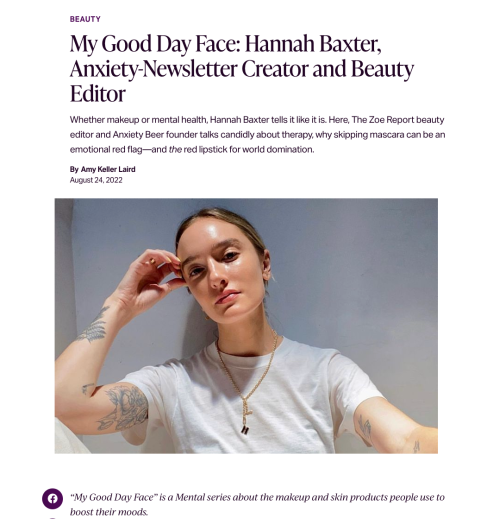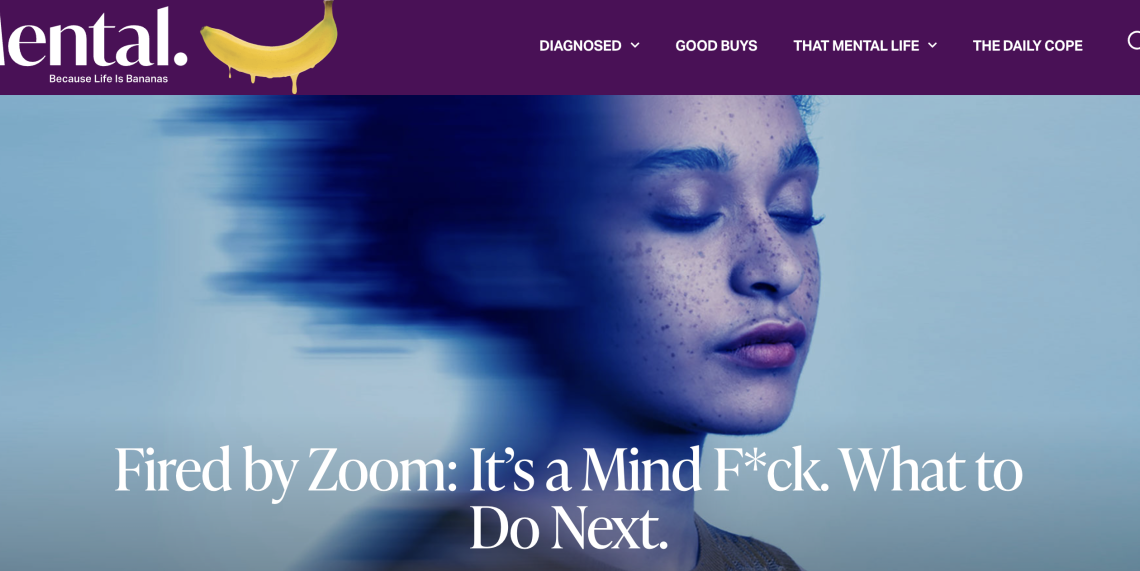Amy Keller Laird spent over a decade as a beauty editor and six-plus years as the editor-in-chief of Women’s Health. That editorial background, plus her own struggle with OCD, led her to found a new website called Mental, Clubmental.com, a resource for all things at the intersection of lifestyle and mental health. Launching on October 5, Mental is less clinical than many of the existing places on the internet where mental health information is typically accessed, like WebMD or Healthline. Its content is geared toward women 22-40, though Keller Laird said it will hopefully appeal to people of all ages and genders.
“You’ve got lifestyle sites, you’ve got mental health sites, you’ve got lifestyle sites that might cover mental health. This is a site that starts at mental health and looks at all pieces of lifestyle through that lens,” she said. The sections of the site include “Diagnosed,” which organizes content by diagnosis, including ADHD, anxiety, bipolar disorder, depression, eating disorders, OCD and trichotillomania, as well as a section on treatment.
Keller Laird self-funded the site, which will, to start, monetize in part via affiliate links. In a section called “Good Buys,” products are organized by the condition they might benefit such as trichotillomania. “This section is not meant to be a treatment center but is a center for lifestyle things that can help you manage throughout the day,” she said. In Keller Laird’s case, she said, every time she travels, she has an OCD reaction if her shoes touch her clothes, so she often searches for the best-looking and coolest shoe bags.
Even without Keller Laird’s background in beauty, the beauty industry and the world of mental health have become increasingly intertwined as brands like Maybelline, Rare Beauty, and Selfmade have developed extensive mental health initiatives. On Club Mental, readers will find a recurring feature called “My Good Day Face,” which features beauty editors like Hannah Baxter, deputy beauty editor at The Zoe Report, talking about both her beauty routine and her anxiety.

Keller Laird also sees this growing intersection as an opportunity for beauty brands to address the ways their products naturally crossover with the needs of those struggling with mental health issues. “There are a couple of beauty-related mental health conditions such as trichotillomania and then dermatillomania, the skin picking disorder. [In my research] talking to women who have this and they’re saying, ‘I use hydrocolloid patches or I use a concealer but it’s got to be creamy,'” Keller Laird said.
The site’s TikTok account, @clubmental, is also making an effort to respond to the zeitgeist through a mental health lens. Keller Laird even made a video examining the mental health benefits, or lack thereof, of corn, in the aftermath of the popularity of “Corn Kid.”
Ad position: web_incontent_pos1
“My goal is to change conversations. If you look at what I’m doing on TikTok, you will see it is very different [from what clinical mental health sites do]. I’m coming to the site from the perspective of being a journalist and lived experience. That combination is pretty unique.”




